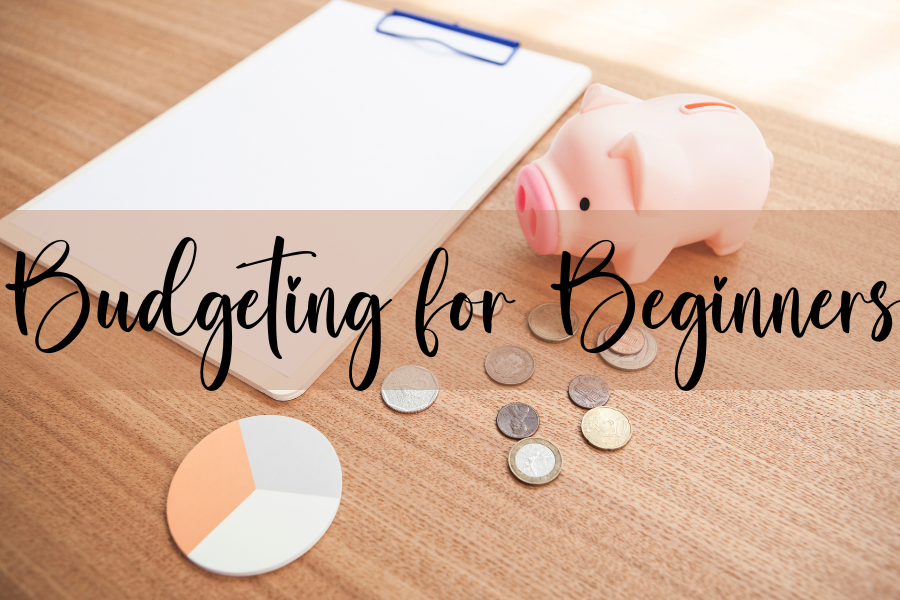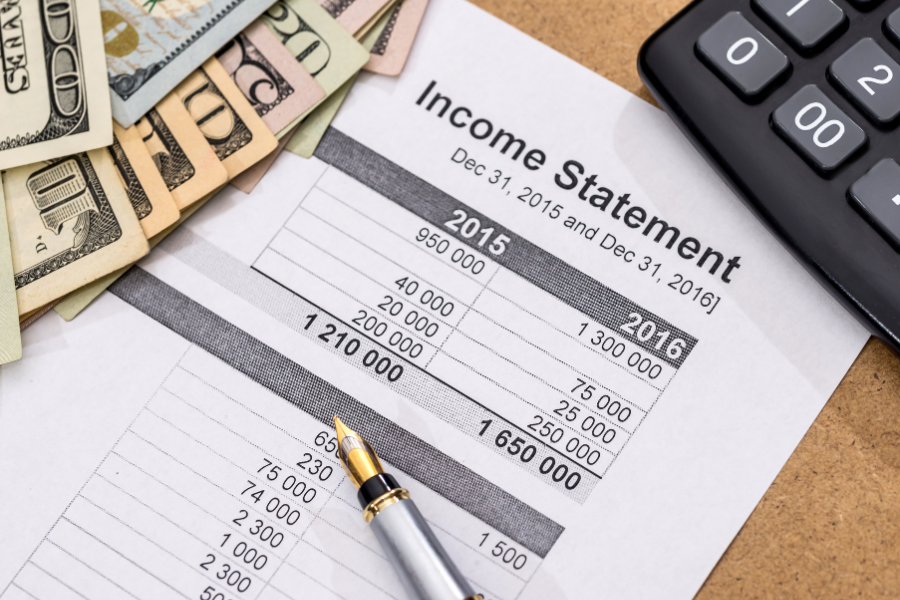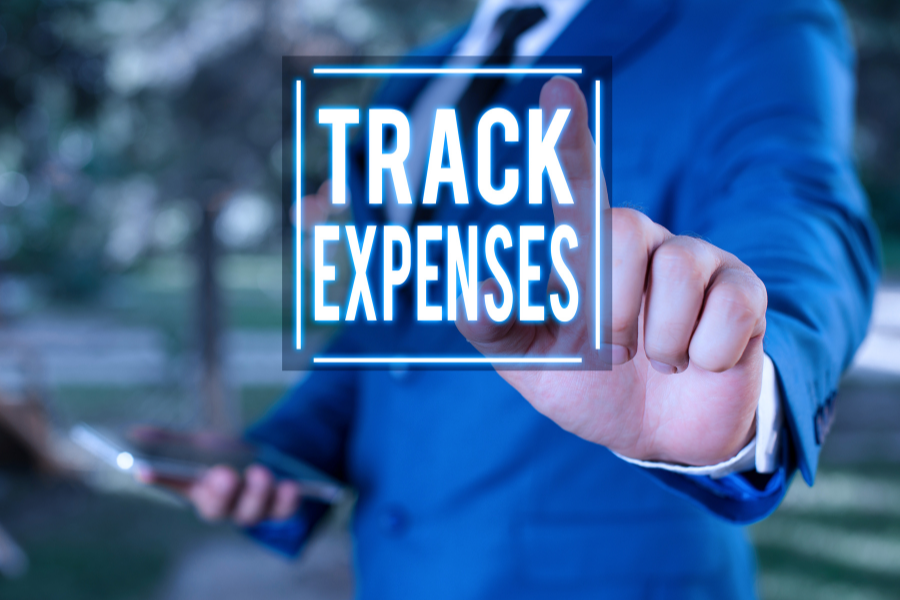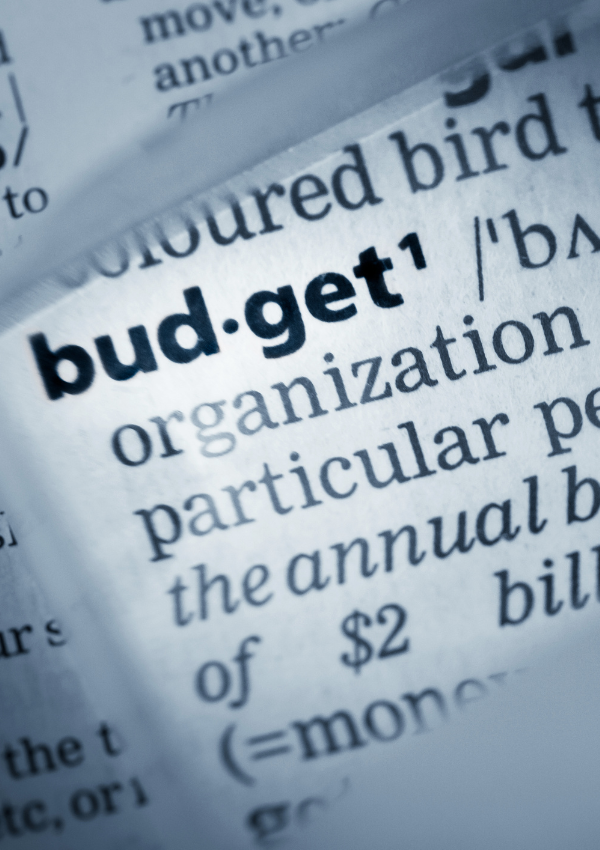This article may contain affiliate links. See our disclaimer for more information.

Today we are going to learn all about budgeting for beginners. Budgeting is an essential skill for managing your finances. Whether you’re just starting out or looking to gain better control over your spending habits, creating a budget is the first step towards financial success.
We will dive into the basics of budgeting and why it is crucial for everyone, especially beginners. We will explore what a budget is, how to create one, and the importance of having a budget in managing your finances effectively.
How to Start

Creating a budget might seem daunting at first, but it is a simple and effective way to manage your finances. The first step is to identify your income sources, including your salary, bonuses, and any other money you receive regularly. Next, track your expenses by categorizing them into fixed and variable expenses. Fixed expenses include rent, mortgage, and car payments, while variable expenses include groceries, entertainment, and other expenses that vary month-to-month. Make sure to include occasional expenses such as semi annual car insurance payments.
The budgeting process has the following steps:
- Identify your income
- Track your expenses
- Categorize your expenses
- Set financial goals
- Allocate funds accordingly
Set Goals

Setting financial goals is crucial when creating a budget. Determine short-term and long-term goals that align with your overall financial plan. Short-term goals may include paying off debt, while long-term goals may include saving for a down payment on a house.
Once you have identified your financial goals, allocate your income accordingly. Prioritize essential expenses such as rent, utilities, and groceries. Then set aside some funds for discretionary spending, such as dining out or entertainment. Allocate any remaining funds to meet your financial goals, such as paying off debt or saving for a down payment.
Track Your Progress

Creating a budget is just the first step. It’s important to track your progress regularly and make adjustments as needed. Revisit your budget monthly or quarterly to ensure that you are on track to meet your financial goals. Utilize budgeting apps or spreadsheets to automate and simplify the process. To learn how to make a budget planner with Rocketbook, check out our article here!
Remember, budgeting is a powerful tool for achieving financial success. Start small and be consistent. Over time, you’ll be amazed at how much control you have over your finances.
Tracking Your Expenses

An important part of budgeting for beginners is learning how to budget your money effectively. Part of successful budgeting is tracking your expenses. By keeping accurate records, you can monitor where your money is going and identify areas where you can cut back.
To begin tracking your expenses, start by categorizing them into groups such as housing, transportation, groceries, entertainment, and other essentials. I also like to include known expenses categories to save for such as Christmas, birthday presents and vacations. I recommend you use budgeting apps or spreadsheets to help you keep track of your expenses and ensure your records stay up to date.
Monitor Spending Habits

It’s essential to monitor your spending habits carefully to ensure you are staying within your budget. Consider setting weekly or monthly spending limits for each category, and regularly reviewing your records to identify any areas where you might have overspent. Doing so will help you stay on track and avoid overspending.
Set Financial Goals

In addition to keeping track of your expenses, it’s important to set financial goals and align them with your budget. By doing so, you can prioritize your spending and work towards achieving those goals within your means. Remember, budgeting is all about finding a balance between your income and expenses to live comfortably while saving for the future.
I set long and short term goals and then reevaluate them every year to keep in check. Knowing if I am underperforming or over performing helps me keep my goals in check and makes for a healthier budget.
With a dedicated effort to tracking your expenses and aligning them with your financial goals, you’ll be well on your way to mastering the art of budgeting.
Set Realistic Financial Goals
While creating a budget is an essential step towards maintaining your finances, it is equally vital to align your budget with your financial goals. The process of setting realistic financial goals begins with defining your short-term and long-term objectives.
To achieve your financial goals, you need to:
- Be specific: Define your objectives in detail, including the exact amount you need to save or invest, the timeline to achieve your goals, and the purpose of the investment.
- Be realistic: Set achievable goals based on your current financial situation, income, and expenses. Aiming too high can lead to disappointment, while setting the bar too low can hinder your progress.
- Track your progress: Regularly monitor your progress towards your financial goals to stay motivated and aligned with your budget. This will help you identify any deviations from your plan and make adjustments accordingly.
Setting realistic financial goals allows you to prioritize your spending, allocate funds accordingly, and track your progress over time. You don’t want to try to save $1000 in a year if you only have $50 extra a month. You’ll never make your goal and get discouraged fairly quickly.
Whether your goals are short-term, such as saving for a vacation or a down payment on a house, or long-term, such as retirement or buying a second home, having a budget can help you achieve them.
Tip: Be flexible and adjust your budget as needed to accommodate changes in your financial situation. Life is unpredictable, and unexpected expenses can arise at any time. Be prepared to adapt your budget to stay on track towards your financial goals.
Remember, the key to setting realistic financial goals is to ensure that they are in line with your budget and financial situation. By defining your objectives, tracking your progress, and adjusting your budget as needed, you can achieve financial success and build a secure future.
Allocating Your Income

Allocating your income wisely is a crucial aspect of effective budgeting for beginners. It is important to prioritize essential expenses, save for emergencies, invest in your future, and indulge in discretionary spending while staying within your budget. This may seem like a lot, so what is the best way to achieve this?
1. Prioritize Essential Expenses
Start by identifying your essential expenses such as rent/mortgage, utilities, groceries, and transportation. Allocate a reasonable amount of your income to these expenses to ensure you have the necessities covered.
2. Save for Emergencies
Unexpected events, such as a job loss or a medical emergency, can have a significant impact on your finances. It’s important to have an emergency fund set aside to cover at least 3-6 months of living expenses. Allocate a portion of your income towards building this fund.
3. Invest in Your Future
Allocating a portion of your income towards investing in your future can be a great way to secure financial stability in the long-run. Consider investing in a retirement plan or setting up a savings account to achieve this goal.
4. Indulge in Discretionary Spending
After allocating your income towards essential expenses, emergency savings, and future investments, you can indulge in discretionary spending. Set a reasonable amount for entertainment, dining out, or hobbies, and stick to it to avoid overspending.
5. Stay Within Your Budget
Remember, the key to effective budgeting is staying within your means. Make sure your expenses do not exceed your income, and adjust your budget accordingly if you find yourself overspending in certain areas.
By allocating your income in a balanced way, you can improve your financial well-being while still enjoying the present moment. Let’s explore some strategies for saving money that can help you achieve your financial goals.
Strategies for Saving Money

When it comes to budgeting, saving money is a key component. Here are some effective strategies for saving money:
- Save a Percentage of Your Income
One effective way to save money is to set aside a percentage of your income each month. This could be 10%, 20%, or any other amount that is feasible for you. By automating this process, you won’t even have to think about it, and your savings will grow over time.
- Automate Your Savings
Setting up an automatic transfer from your checking to savings account can help you save without even thinking about it. Consider setting up automatic deposits for any extra income you receive, such as tax refunds or raises.
- Reduce Your Expenses
Reducing your expenses can also help you save money. Look for areas where you can cut back, such as dining out or subscription services you don’t use. Small changes can add up to significant savings over time.
- Explore Frugal Living Tips
Frugal living is a lifestyle that emphasizes saving money. There are many frugal living tips you can incorporate into your life, such as buying generic brands, shopping at thrift stores, and cooking meals at home instead of eating out.
By implementing these strategies, you can save money while still maintaining your lifestyle. Remember that small changes can add up to significant savings over time, so be consistent and stay committed to your budgeting goals.
Related articles:
Navigating Financial Challenges

One of the best benefits of having a budget is being able to navigate financial challenges. Whether it’s an unexpected expense or a sudden drop in income, having a budget can help you stay financially stable during tough times.
One important aspect of navigating financial challenges is having an emergency fund. This fund should be separate from your regular savings and should be used only for unexpected expenses, such as car repairs or medical bills. It’s recommended to have three to six months’ worth of living expenses saved in your emergency fund. I keep mine in its own savings account in a separate bank from my main accounts.
Managing debt is another crucial aspect of maintaining financial stability. By prioritizing high-interest debt and making regular payments, you can work towards paying off your debt and improving your credit score.
During times of financial instability, it may be necessary to adapt your budget. This may include cutting back on discretionary spending or finding ways to increase your income. Your budget is a flexible tool that can be adjusted to meet your changing financial needs.
Overall, having a budget is essential for navigating financial challenges. By prioritizing emergency savings, managing debt, and adapting your budget as needed, you can maintain financial stability even during tough times.
Building Wealth for the Future

Starting budgeting as a beginner is a crucial component of managing your finances effectively. But it’s not just about making ends meet in the present. It’s also about securing your financial future. Here are some strategies for building long-term wealth through effective budgeting.
- Save for Retirement
One of the most critical steps you can take towards building wealth is saving for retirement. By starting to invest early, you can maximize the power of compound interest and build a substantial nest egg over time. Consider contributing to a 401(k) or IRA, and aim to contribute at least 10-15% of your income towards retirement savings.
- Invest Wisely
In addition to saving for retirement, it’s also crucial to invest your money wisely. Consider working with a financial advisor to create a diversified investment portfolio that aligns with your goals and risk tolerance. By investing consistently and strategically over the long term, you can grow your wealth and secure your financial future.
- Maximize Your Budget
Your budget is a powerful tool in building wealth. By allocating your income strategically and prioritizing saving and investing, you can make the most of your money and work towards your financial goals. I highly recommend using a budgeting app or spreadsheet to track your expenses especially when budgeting for beginners. It’s what I do! Be sure to adjust your budget as needed. And don’t forget to regularly review your budget to ensure you’re staying on track towards your goals.
Conclusion

As a beginner, budgeting may seem overwhelming, but it’s crucial to financial prosperity. You have now learned about budgeting and its definition. I have provided step-by-step guidance on creating a budget, tracking expenses, and setting realistic financial goals.
By now, you should understand budgeting for beginners and the importance of having a budget in managing your finances effectively. It helps you prioritize expenses, allocate funds accordingly, and save for emergencies, investments, and future goals.
Remember, budgeting is an ongoing process that requires discipline and consistency. Don’t be discouraged by challenges or setbacks. Adapt your budget and keep moving forward.
Implement the strategies learned in this article, and start your budgeting journey today. Remember, as a beginner, start slow, keep it simple, and gradually make it a habit. Soon, you’ll reap the benefits of effective budgeting and financial success.
Happy budgeting!





